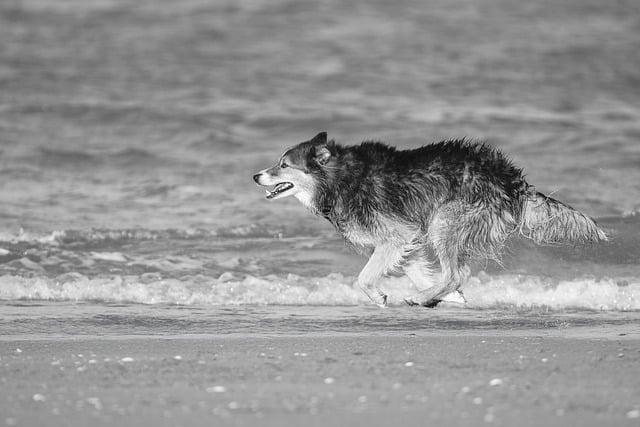Imagine a golden retriever named Max, who eagerly awaits his meals each day. His owner, Sarah, noticed that Max was more energetic and playful when fed at the same time each day. After researching, she discovered that consistency in mealtime not only regulates digestion but also enhances behavior. Feeding Max in the morning and evening created a routine he thrived on. For your dog’s health and happiness, establish a regular feeding schedule. It’s not just about food; it’s about fostering a joyful, balanced life for your furry friend.
Contents
- Optimal Feeding Times for Dogs to Enhance Digestion
- The Impact of Routine on Your Dogs Behavior and Well-Being
- Tailoring Meal Schedules to Your Dogs Age and Activity Level
- Expert Recommendations for Balanced Nutrition Throughout the Day
- Q&A
Optimal Feeding Times for Dogs to Enhance Digestion
Feeding your dog at consistent times each day can significantly improve their digestion and overall health. Establishing a routine helps regulate their digestive system, making it easier for their bodies to process food efficiently. Dogs thrive on predictability, and knowing when to expect their meals can reduce anxiety and promote a sense of security.
Research suggests that feeding dogs twice a day, typically in the morning and evening, aligns well with their natural eating patterns. This schedule allows for adequate time between meals, which is essential for proper digestion. Consider the following benefits of a twice-daily feeding routine:
- Improved Digestion: Spacing meals apart gives the digestive system time to break down food effectively.
- Weight Management: Regular feeding times can help control portion sizes and prevent overeating.
- Behavioral Stability: A consistent schedule can reduce food-related anxiety and promote calmness.
Timing is also crucial when it comes to your dog’s activity level. Feeding your dog at least an hour before exercise can prevent digestive issues such as bloating or discomfort. Conversely, waiting at least 30 minutes after physical activity before offering food allows their body to settle, ensuring a smoother digestion process. This careful consideration of timing can lead to a happier, healthier dog.
Lastly, be mindful of your dog’s individual needs. Factors such as age, breed, and health conditions can influence the optimal feeding schedule. For instance, puppies may require more frequent meals, while older dogs might benefit from smaller, more digestible portions. Consulting with your veterinarian can provide tailored advice, ensuring that your dog’s feeding times are perfectly aligned with their unique digestive requirements.
The Impact of Routine on Your Dogs Behavior and Well-Being
Establishing a consistent feeding schedule for your dog is crucial for their overall behavior and well-being. Dogs thrive on routine, and knowing when to expect their meals can significantly reduce anxiety and promote a sense of security. A regular feeding time helps your furry friend understand what to anticipate throughout the day, leading to a more balanced and relaxed demeanor.
Feeding your dog at the same time each day can also enhance their digestive health. A predictable schedule allows their digestive system to function optimally, reducing the likelihood of gastrointestinal issues such as bloating or upset stomach. When dogs know when they will be fed, they are less likely to scavenge or beg for food at inappropriate times, which can lead to behavioral problems.
Moreover, a structured feeding routine can positively influence your dog’s training and obedience. When meals are served consistently, it becomes easier to incorporate feeding times into training sessions. For instance, using meal times as a reward can reinforce good behavior and strengthen the bond between you and your pet. This approach not only encourages discipline but also fosters a deeper understanding of commands and routines.
Lastly, consider the timing of your dog’s meals in relation to their daily activities. Feeding them before exercise can provide the necessary energy for playtime, while a meal after a walk can help them wind down. By aligning their feeding schedule with their activity levels, you can enhance their physical health and emotional stability, ensuring that your dog remains happy and well-adjusted.
Tailoring Meal Schedules to Your Dogs Age and Activity Level
Understanding your dog’s age and activity level is crucial when determining the optimal meal schedule. Puppies, for instance, have high energy needs and a fast metabolism, requiring more frequent meals throughout the day. Typically, feeding them three to four times daily ensures they receive the necessary nutrients to support their growth and development. As they transition into adulthood, their feeding frequency can be reduced to two meals per day, aligning with their changing energy requirements.
For adult dogs, the timing of meals can significantly impact their overall health and behavior. Dogs that are highly active may benefit from a meal schedule that aligns with their exercise routine. Feeding them before a workout can provide the energy they need, while a post-exercise meal can aid in recovery. Consider the following tips for adult dogs:
- Feed before exercise: This can help fuel their activity.
- Post-exercise meals: A meal after physical activity aids recovery.
- Consistent timing: Regular feeding times can help regulate their digestion.
Senior dogs often have different dietary needs and may require adjustments to their meal schedules. As their metabolism slows down, it’s essential to monitor their weight and adjust portion sizes accordingly. Feeding them smaller, more frequent meals can help manage their energy levels and prevent obesity. Additionally, consider incorporating easily digestible foods that cater to their changing health needs. Here are some considerations for senior dogs:
- Smaller portions: Helps manage weight and digestion.
- Frequent meals: Can prevent hunger and maintain energy levels.
- Specialized diets: Focus on nutrition that supports joint and heart health.
Ultimately, tailoring your dog’s meal schedule to their age and activity level not only promotes better health but also enhances their quality of life. By paying attention to their specific needs, you can create a routine that supports their energy levels, digestion, and overall well-being. Remember, every dog is unique, so it’s essential to observe their behavior and adjust their feeding schedule as necessary to ensure they thrive at every stage of life.
Expert Recommendations for Balanced Nutrition Throughout the Day
When it comes to ensuring your dog receives balanced nutrition throughout the day, timing plays a crucial role. Experts recommend establishing a consistent feeding schedule that aligns with your dog’s natural rhythms. This not only helps in digestion but also promotes a sense of security and routine. Aim for two meals a day, spaced approximately 12 hours apart, to maintain energy levels and prevent overeating.
Incorporating a variety of nutrients into your dog’s diet is essential for their overall health. A balanced meal should include:
- High-quality protein: Essential for muscle development and repair.
- Healthy fats: Important for skin and coat health, as well as energy.
- Carbohydrates: Provide a source of energy and aid in digestion.
- Vitamins and minerals: Support various bodily functions and immune health.
Feeding your dog at the same times each day can also help regulate their metabolism. Dogs thrive on routine, and a predictable schedule can reduce anxiety around mealtime. If you notice your dog is particularly hungry in the morning, consider adjusting their feeding time slightly earlier to accommodate their needs. Always monitor their weight and adjust portion sizes as necessary to maintain a healthy body condition.
Lastly, be mindful of your dog’s activity level throughout the day. If your dog is more active in the morning, a larger breakfast may be beneficial, while a lighter dinner can help prevent discomfort during nighttime rest. Always consult with your veterinarian to tailor a feeding plan that best suits your dog’s specific health requirements and lifestyle, ensuring they receive the balanced nutrition they need to thrive.
Q&A
-
What is the best time of day for dogs to eat?
The best time for dogs to eat is typically twice a day, once in the morning and once in the evening. This schedule helps maintain their energy levels and supports healthy digestion.
-
Can I feed my dog once a day?
While some owners choose to feed their dogs once a day, it is generally recommended to split their meals into two. Feeding twice daily can prevent overeating and reduce the risk of bloat, especially in larger breeds.
-
Should I adjust feeding times based on my dog’s age?
Yes, feeding times should be adjusted based on your dog’s age. Puppies require more frequent meals, typically three to four times a day, while adult dogs thrive on two meals. Senior dogs may benefit from smaller, more frequent meals to aid digestion.
-
How do I establish a feeding routine for my dog?
To establish a feeding routine, choose consistent times each day and stick to them. This predictability helps your dog feel secure and can improve their overall behavior. Always ensure fresh water is available, and monitor their weight and health regularly.
establishing a consistent feeding schedule for your dog is crucial for their health and well-being. By choosing the right time of day, you can enhance their digestion, energy levels, and overall happiness. Prioritize their routine for a healthier, happier pup!




